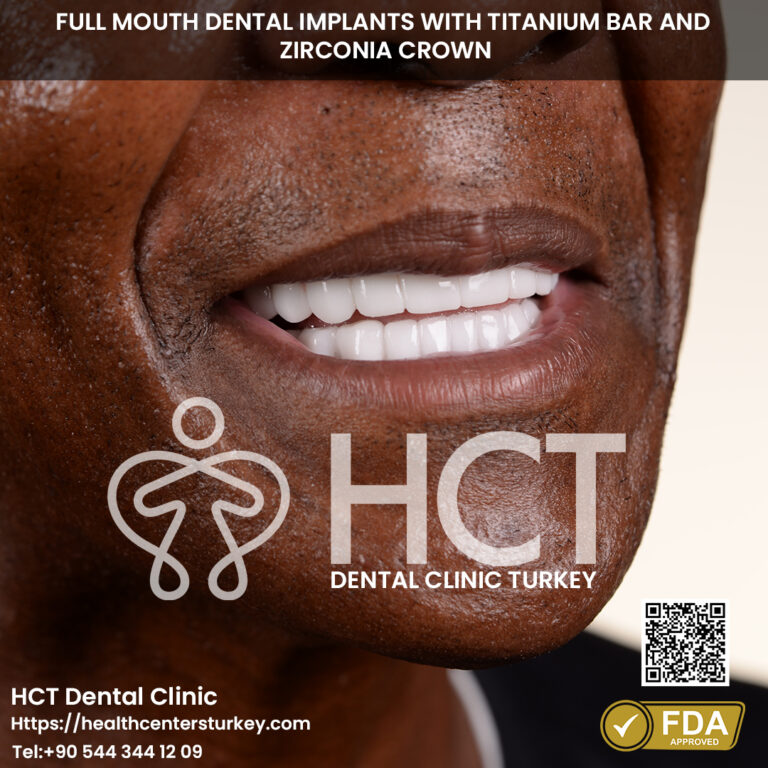Explore Treatment Alternatives for Tooth Replacement Solutions
Explore Treatment Alternatives for Tooth Replacement Solutions
Blog Article
Prioritize Your Oral Health with Affordable Options in Turkey
Dental implants have turn out to be a preferred solution for these looking to replace missing teeth. Understanding how these implants can affect adjacent teeth is crucial for anyone contemplating this process, as properly as for dentists and specialists concerned in dental care.

One important facet is that dental implants are designed to be anchored into the jawbone, which suggests they are unbiased of adjacent teeth. Unlike dental bridges, which often require the alteration of neighboring teeth, implants can fill the hole with out compromising the health or structure of those surrounding teeth.
This independence helps preserve the integrity of adjacent teeth. When a tooth is lost, there is usually a natural tendency for neighboring teeth to tilt or shift into the empty area. Such movement can result in misalignment, which may have an effect on chew and overall oral health. By inserting an implant, you effectively prevent this potential shift, selling better alignment in the long run.
Find Your Perfect Dental Clinic in Turkey for Aesthetic Procedures
Additionally, dental implants help keep bone density in the jaw. A natural tooth root supplies stimulation to the surrounding bone, preserving it healthy and robust. When a tooth is missing, the bone can start to deteriorate because of lack of stimulation. With a dental implant mimicking a natural root, bone loss may be minimized, which indirectly advantages adjacent teeth by preserving the overall structure of the dental arch.
While dental implants are advantageous, improper placement can impression neighboring teeth. If an implant is positioned too close to a different tooth, it could exert undue stress on that tooth, leading to discomfort or potential injury. Proper planning and imaging techniques are important for avoiding such issues.
Everything You Need to Know about Dental Procedures in Turkey
Moreover, sustaining good oral hygiene is essential after receiving an implant. If not properly cleaned, surrounding teeth could become prone to dental issues similar to decay or gum disease. This underscores the importance of diligent oral care following the process to make sure both implants and adjacent teeth stay wholesome.
Regular dental check-ups are also important for monitoring the health of surrounding teeth. Dentists can determine any shifts or potential problems early, permitting for well timed interventions. This proactive method ensures that each the implant and adjacent teeth can coexist with out issues.
Achieve Your Best Smile with Innovative Dental Solutions in Turkey
Another consideration is the impact of implants on chew drive. When a single tooth is missing, the load of chewing may shift to adjacent teeth, probably resulting in wear or strain. Implants restore correct bite dynamics by redistributing forces in the mouth, which may defend surrounding teeth from undue stress.
Some patients might elevate issues about the appearance of dental implants. Well-placed implants can mix seamlessly with current teeth, improving overall aesthetics. In contrast, failing to exchange a missing tooth can result in aesthetic points, including collapsing of facial structure and modifications in smile dynamics.
It's additionally price discussing the psychological aspects of dental health. Experiencing tooth loss can adversely affect one’s vanity and willingness to have interaction socially. By restoring your smile with implants, you'll find a way to positively influence not only your oral health but in addition your emotional well-being.
Long-term success of dental implants usually hinges on varied components, including the patient's health, maintenance habits, and the quality of the initial procedure. If adjacent teeth are healthy and properly cared for, the chances a fantastic read are they may proceed to thrive alongside the implants.
Child-friendly Dental Clinics in Turkey
In conclusion, dental implants play a vital role in not just restoring individual smiles, but in preserving the health and structure of adjacent teeth. By stopping shifting, sustaining bone density, and redistributing chew forces, implants can be certain that surrounding teeth stay in optimum condition. Proper placement, hygiene, and regular dental visits can further enhance the benefits of dental implants, leading to a healthier, more confident smile for years to come.
- Dental implants can help maintain the alignment of adjacent teeth by providing a stable anchor, preventing adjacent teeth from shifting into the hole left by a missing tooth.
- The presence of an implant could stimulate bone development within the jaw, serving to to protect the overall structure and integrity of the adjacent teeth.
- Unlike traditional bridges, implants do not require alteration of surrounding teeth, thus preserving their strength and anatomy.
- Implants can enhance the distribution of bite forces evenly across the dental arch, lowering the stress on neighboring teeth throughout chewing.
- A well-integrated dental implant can decrease the danger of bone loss in the area surrounding adjacent teeth, contributing to their long-term health and stability.
- The aesthetics of adjacent teeth could be improved due to the help provided by implants, which can result in higher general cosmetic outcomes.
- With proper placement, dental implants can prevent gum recession around adjacent teeth by sustaining sufficient dental architecture.
- Implants can help mitigate the risks of periodontal disease in nearby teeth by promoting wholesome gum tissue and offering a washer-friendly surface.
- Long-term success of dental implants can result in improved oral hygiene routines, which in flip benefits the health of surrounding teeth.
- The improved useful ability of an implant can encourage patients to chew extra successfully, thus growing saliva production and aiding within the safety of adjacent dental tissues.undefinedHow do dental implants have an effect on adjacent teeth?
What are dental implants and how do they work together with adjacent teeth?undefinedDental implants are artificial tooth roots which are surgically positioned into the jawbone. They present a stable basis for replacement teeth whereas ensuring minimal disruption to adjacent teeth, preserving their integrity and alignment. Skill in Restorative Dentistry at Affordable Rates.
Custom Dental Solutions for Individuals Seeking Care in Turkey
Can dental implants cause problems for nearby natural teeth?undefinedGenerally, dental implants don't harm adjacent natural teeth. However, if the implant is not positioned appropriately or if there’s inadequate oral hygiene, it could lead to complications corresponding to adjacent tooth decay or gum disease.

Will getting a dental implant change the greatest way my adjacent teeth feel?undefinedMost patients report no change in the sensation of adjacent teeth after implant placement. However, it may take some time to adjust to the presence of the implant, similar to how one may adapt to different dental restorations.
Can dental implants assist protect the health of adjacent teeth?undefinedYes, dental implants may help preserve the health of adjacent teeth by stopping bone loss that can occur after tooth loss. This preservation supports Discover More Here the alignment of nearby teeth, lowering the chance of shifting or misalignment.
Key Insights on Dental Procedures in Turkey
Do I need to modify adjacent teeth when getting an implant?undefinedTypically, adjacent teeth do not want alteration when inserting an implant. This is considered one of the advantages of dental implants over traditional bridges, which regularly require reshaping adjacent teeth for assist.
How does the therapeutic means of an implant affect nearby teeth?undefinedThe healing process includes osseointegration, where the implant fuses with the jawbone. During this time, adjacent teeth remain unaffected and retain their perform, although it’s important to comply with post-operative care recommendations. Top Reviewed Dental Treatments for International Patients in Turkey.
Exceptional Dental Services Focused on Customer Satisfaction
Can dental implants result in bone loss around adjacent teeth?undefinedIf dental implants are positioned properly and cared for adequately, they need to not result in bone loss around adjacent teeth. In fact, they can help stimulate bone growth, combating the natural bone loss that often follows tooth extraction.
What precautions ought to I take to protect adjacent teeth after getting an implant?undefinedRoutine dental hygiene, together with brushing and flossing, along with common dental check-ups, is crucial. Avoiding exhausting meals and following your dentist’s aftercare instructions may even shield both the implant and adjacent teeth.
Is it frequent for adjacent teeth to shift after an implant is placed?undefinedIt's not typical for adjacent teeth to shift after an implant placement, especially when the implant is positioned appropriately and maintained properly. If there’s any motion, it might be because of different underlying issues that ought to be evaluated by a dental professional. Report this page